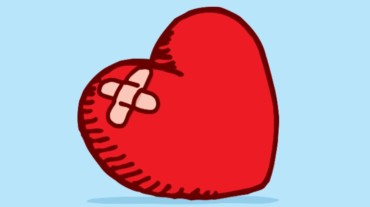
Do you feel like a workout is not worth being called a workout if there is no involvement of hardcore cardio in it? Perhaps, you don’t feel satisfied without running fast enough or a stair-climbing workout that leaves your drenched in sweat or a cycling session that leaves your thighs feeling sore.
It’s easy to understand why you continue with this heartbeat-raising regime. You absolutely love that it yields results and brings down your weight.
In fact, from boosting cardiovascular health and improving brain function to boosting your mood, the benefits of cardio exercises are abundant.
However, if done in excess, a cardio workout can actually backfire
“If you are doing too much cardio, you can start losing muscle that you might have gained with other forms of workouts. As a result, you could experience too much muscle soreness—even in the areas that are not involved in your workout routine,” warns Dr. Kruti Khemani, physiotherapist and founder, Continuum Sports Physiotherapy and Rehab Centre, Mumbai.

Losing muscle also means slowing down your metabolism and thus, the rate at which you burn calories. Moreover, when your muscles are already suffering so much due to excessive cardio, the risk of injury increases ten folds. Hence, an excessive amount of cardio is simply bad for your overall health.
Here are the signs that indicate you’re doing too much of it
To make it easier for you guys to figure out if you’re going overboard, Dr. Khemani lists out signs that indicate that you’re indulging in excessive cardio. Check ‘em out and make notes:
1. Fatigue
You do not feel well-rested even after a good night’s sleep as over-exercising can increase the levels of stress hormones like cortisol. Come bedtime, those stress hormones can keep you up and lead to decline in your sleep quality.
2. You’re always sore
Like any exercise, doing too much cardio can lead to injuries. These may be major injuries or minor ones. Often, we try to just push past a little soreness, but any pain should be addressed right away by visiting a physiotherapist/coach.

3. Your weight loss has slowed down
Too much cardio makes you lose muscle mass and this makes your metabolism slow. As a result, the fat burning mechanism in your body slows down. Thus, your weight-loss results won’t be as quick as they used to be.
4. Your ‘easy’ days consistently feel harder than usual
This is usually because the body hasn’t recovered from the previous day’s workout involving excess cardio.
5. Your heart rate remains fast
If you notice your resting heart rate by checking your heartbeat after waking up and it continues to stay high for 4-5 days continuously, it could be a dangerous indicator of too much cardio.
This happens because the muscle memory of your heart forgets what it is like to be relaxed and have a normal resting ‘tone’. This keeps the heart rate elevated.

So, how much cardio should be done ideally?
The right amount of cardio is based on a number of factors like age, existing medical history, along with current or past injuries. However, in general, The Centers for Disease Control and Prevention (CDC) recommends 150 minutes or more of moderate-intensity physical activity, or 75 minutes or more of vigorous-intensity activity each week for overall health and disease risk reduction. Based on this guideline, you could do five brisk 30-minute walks a week.
Too much of anything is bad! Do cardio in moderation and notice your body getting toned as well as healthy.